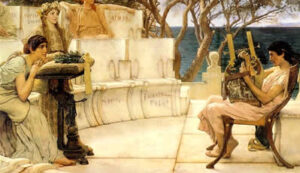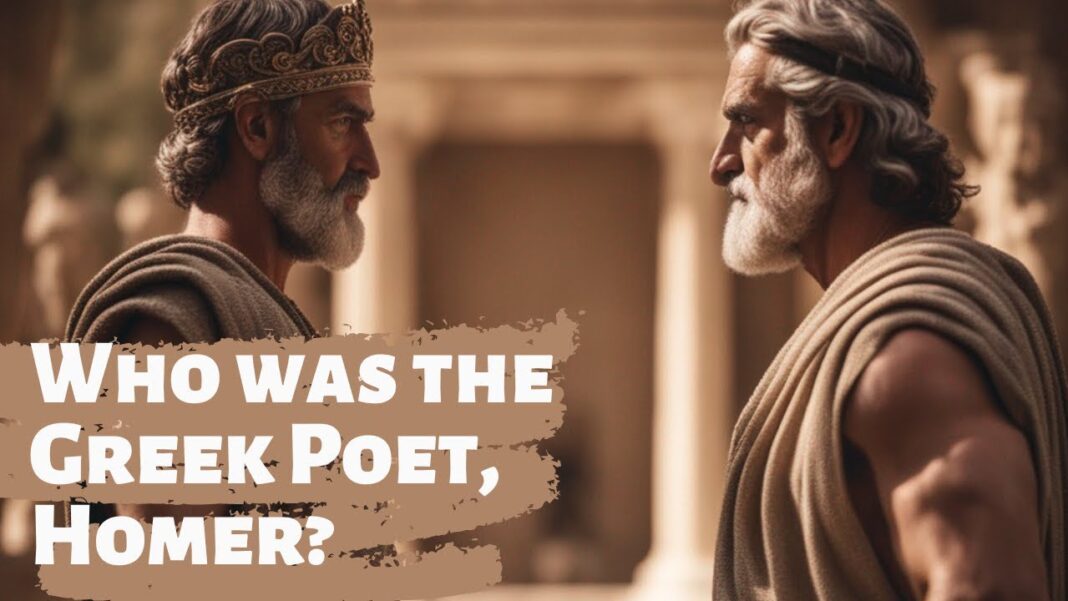The Timeless Echoes of Classical Verse
In the vast expanse of literary history, few traditions resonate as deeply as ancient Greek poetry. Like some ancient Greek poetry, the verses composed by poets of the classical era are infused with a timeless quality, their echoes still reverberating through the corridors of time. These works, rich in emotion, philosophy, and cultural wisdom, continue to inspire and captivate readers, scholars, and creators alike.
The Essence of Ancient Greek Poetry
At the heart of ancient Greek poetry lies a profound connection to the human experience. Whether through the epic adventures of Homer’s “Iliad” and “Odyssey,” the lyrical reflections of Sappho, or the tragic intensity of Sophocles, these poems explore universal themes such as love, honor, fate, and the divine. The poets’ skillful use of meter, rhythm, and language creates a musicality in their verses, a cadence that feels as natural as a heartbeat.
Greek poetry often employed a strict metrical form, with dactylic hexameter being a prominent example in epic poetry. This meter, characterized by a long syllable followed by two short syllables, gives the verses a rolling, rhythmic quality that mirrors the ebb and flow of life itself. The careful structuring of these poems was not merely an artistic choice but also a reflection of the Greek belief in harmony, balance, and order.
The Role of the Poet in Ancient Greece
In ancient Greece, the poet was more than a mere creator of verse; they were a custodian of cultural memory, a guide to moral and ethical understanding, and a voice that bridged the mortal and the divine. Poets like Homer and Hesiod were revered not only for their storytelling prowess but also for their ability to convey the values and beliefs of their society. Through their works, they preserved the myths, histories, and philosophies that shaped the Greek world.

Lyrical poets such as Sappho and Pindar, on the other hand, focused on more personal and emotional themes. Their poetry, often performed with musical accompaniment, explored the intricacies of love, desire, and the human condition. Sappho’s poetry, though only surviving in fragments, is celebrated for its intense emotional depth and its ability to convey the subtleties of affection and longing.
The Influence of Greek Poetry on Western Literature
The influence of ancient Greek poetry on Western literature is immeasurable. Like some ancient Greek poetry, later works of literature often drew upon the themes, forms, and motifs established by the Greeks. The Roman poets Virgil and Ovid, for instance, were heavily inspired by Greek models, and their works further cemented the importance of Greek poetic traditions in the literary canon.
During the Renaissance, there was a revival of interest in classical Greek texts, which inspired poets like Dante Alighieri and John Milton. Their epic works, such as “The Divine Comedy” and “Paradise Lost,” echo the grandeur and structure of Greek epics, while also exploring complex theological and philosophical themes reminiscent of ancient Greek thought.
Even today, the impact of Greek poetry can be seen in modern literature, where the exploration of archetypal themes, the use of mythological allusions, and the pursuit of lyrical beauty are all testament to the enduring legacy of the ancient Greek poets.
Conclusion
Like some ancient Greek poetry, the verses from this classical era transcend the boundaries of time and place, offering insights into the human soul that remain relevant and profound. The poets of ancient Greece, with their mastery of language and deep understanding of the human condition, have left an indelible mark on the world. Their works continue to inspire new generations of readers and writers, ensuring that the timeless echoes of their poetry will never fade from the collective memory of humanity.




